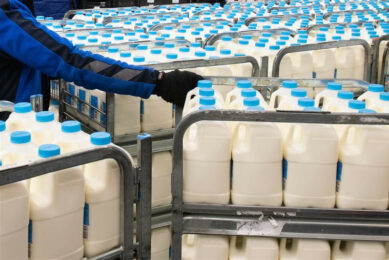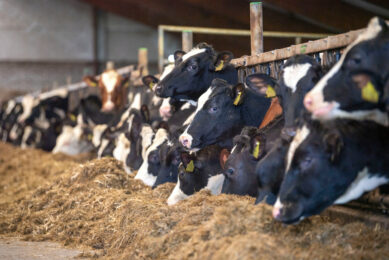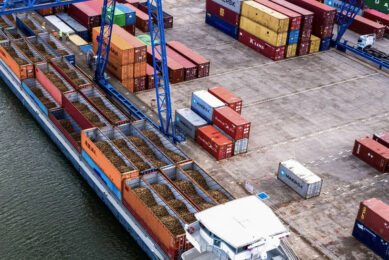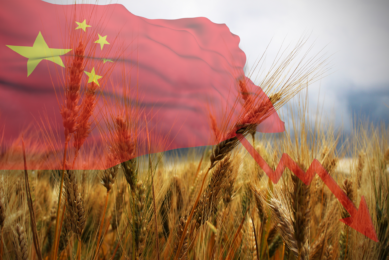China and EU dairy trade dispute: What’s the story?
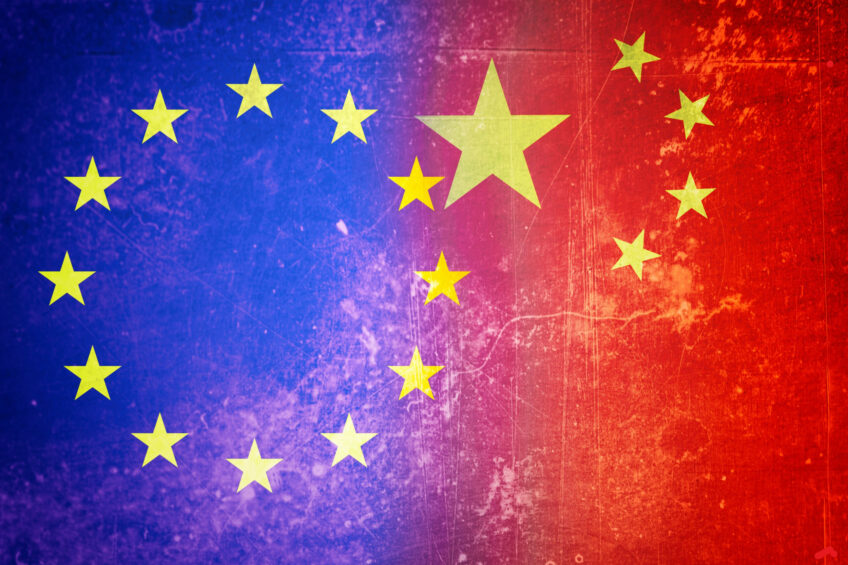
The Chinese department of commerce announced it will investigate unfair trade practices caused by the subsidies paid to European dairy farmers. Although the Chinese authorities have not given any specific background information, it’s assumed that Beijing is acting in retaliation to a levy the European Commission has imposed on electric cars imported from China.
“For many years now, the European Union has proven to be a reliable supplier of high-quality dairy products and ingredients to the market in China. It’s highly unfair that dairy is now going to be sacrificed in an industrial conflict about electric vehicles. The European Commission should do everything in its power to solve this trade dispute as quickly as possible.”
That’s the reaction of Eucolait, the European umbrella organisation for the dairy industry, after the announcement by the Chinese department of commerce that it will investigate unfair trade practices caused by the subsidies paid to European dairy farmers. The announcement follows a similar investigation in June concerning the pork industry in the EU. Although the Chinese authorities have not given specific background information, it’s assumed that Beijing is acting in retaliation to a levy the European Commission has imposed on electric cars imported from China, as Eucolait says.
“The Ministry of Commerce has decided to initiate an anti-subsidy investigation on imports of relevant dairy products originating from the EU from 21 August 2024,” the Chinese ministry said. The probe was prompted by a complaint submitted by the Dairy Association of China and the China Dairy Industry Association on 29 July on behalf of the domestic dairy industry, the ministry said. The period of subsidy payments under investigation is from 1 April 2023 to 31 March 2024, and the ‘industry injury’ investigation period is a 4-year timeframe from 1 January 2020 to 31 March 2024.
Dairy products
The products to be investigated include fresh cheese, processed cheese, blue cheese, milk, and cream, that are used for food consumption directly or after processing. Beijing adds that it is looking specifically at a total of 20 subsidy projects of which the EU dairy industry benefits. The investigation will last for a year with a possible extension of another 6 months.
The European Commission has taken note of the decision by the government of China. “The commission will follow the proceeding very closely, in coordination with EU industry and member states. The commission will firmly defend the interests of the EU dairy industry and the Common Agricultural Policy and intervene as appropriate to ensure that the investigation fully complies with relevant WTO (World Trade Organisation) rules,” it said in a statement.
China is one of the largest importers of dairy from the EU, although the total import figures recently show a decline due to higher domestic production and self-sufficiency. In the first half of 2024, total imports of dairy products in China were at their lowest since 2018 at 1.19 million tonnes, which a decline of 14.1% year-on-year. This decline is the continuation of a trend noticed since 2022. Dutch Rabobank forecasts that China’s milk production will increase by 3.2% in 2024, to 43.3 million tonnes.
China dairy imports
Ample milk supply and increased production have weighed on powder markets, the UK levy board AHDB recently reported. Whole milk powder imports into China declined by 9.5% in the first half of 2024. A larger decline was noticed in imports of skim milk powder, with volumes back by almost 36% year-on-year to 132,400 tonnes. As powders are the largest contributor to the overall import basket, these declines will impact global trade dynamics, likely pressuring prices, AHDB comments.
New Zealand remains the largest exporter of dairy products to China, capturing a 51% market share in the first half of 2024. The US is the second-largest supplier of China’s dairy imports with a share of 13%. In Europe, the largest dairy exporters to China are Germany with a 7% share and France with a 4% share of the total imports.
EU dairy farm organisations
In many European countries, organisations in the dairy industry are worried about the Chinese announcements. Copa Cogeca, the group of EU farm organisations, stated in a social media post: “This further escalation in the EU-China trade relationship and the continuous impact on our sector is very worrying. Our dairy farmers and agri-coops produce and export in full respect of EU and WTO rules, but once again, our well-performing exports are the target due to other disputes. Aside from the trade volumes that can be impacted by this investigation, the most worrying is the challenge to the EU’s Common Agriculture Policy. This is unacceptable, and we expect a strong reaction from the European Commission and full support to our producers in the next steps of this process.”
Germany and China dairy trade
“Germany is not mentioned specifically, but any measurements by China can have EU-wide repercussions. Germany and China have, for many years, built up reliable and trustworthy trade relations. China is an important importer of German dairy products, despite growing Chinese production. Therefore, both parties should try their hardest to avoid the dairy and food industry being pulled in an unpleasant way into the ongoing industrial dispute about electric vehicles,” the German Milchindustrie-Verband says.
In Ireland, the Irish Creamery Milk Suppliers’ Association describes the export of dairy products as ‘collateral damage’ in the ongoing trade dispute between the EU and China. President Denis Drennan: “This dispute is completely unrelated to Irish dairy. The idea that, for instance, Irish butter or powders were, in any fashion, the beneficiaries of state support or funding would be comical if the situation was not serious. If anything, the Irish government’s policies work as a penalty in our sector and, so far from aiding, they actually deduct from our ability to sell successfully abroad,” he claimed. “Food exports are being held hostage in a dispute that is not even tangentially related to our sector.”
Join 13,000+ subscribers
Subscribe to our newsletter to stay updated about all the need-to-know content in the dairy sector, two times a week.



